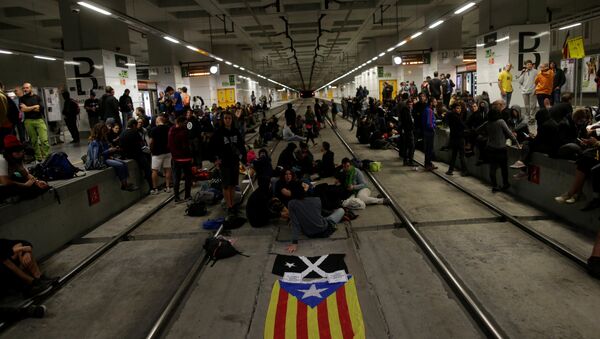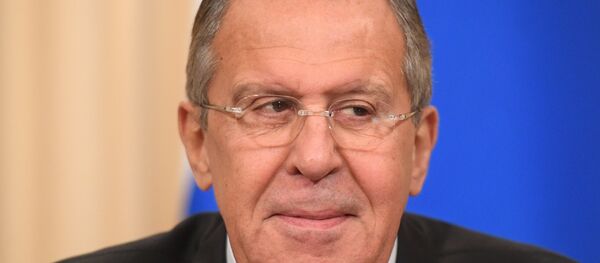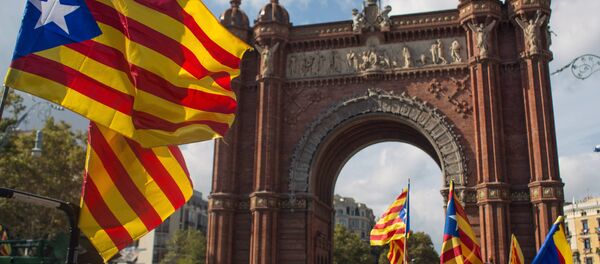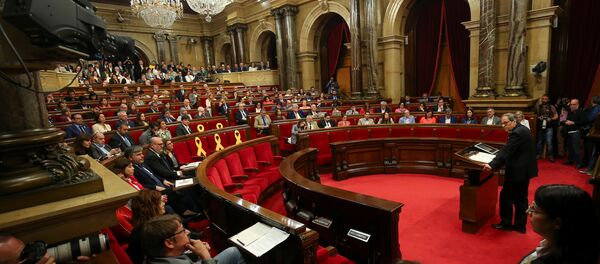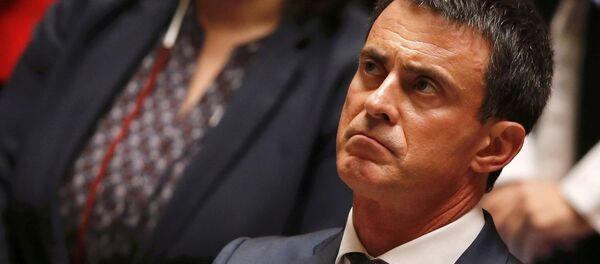Radio Sputnik has discussed the current mood of Catalonians in regard to the region's independence a year after the referendum with Dr. Carlos Flores Juberías, constitutional law professor and political analyst at the University of Valencia.
Sputnik: A year on from the vote, how united are Catalans in their bid to go through with the independence?
Sputnik: What are the chances that a referendum will ever be allowed? If a referendum were to happen today, who would win that referendum in your opinion?
Carlos Flores Juberías: The chances that a new referendum will happen are zero. On the one side, the government has clearly said and there's unanimity in the government and the opposition parties that they are not going to accept any referendum on independence. On the other side, when Pedro Sanchez, the Prime Minister, suggested the possibility of putting to referendum a new statute of autonomy, a new law in order to increase self-government for Catalonia but not granting independence, guess what, pro-independence party said no.
READ MORE: Catalonia Independence Supporters Try to Adapt to New Reality — Politician
Sputnik: Who has the most to gain from independence? Why is there so much resistance to re-negotiating the terms of the relationship between Catalonia and Spain?
Carlos Flores Juberías: Because at this point there's not even the grounds for an agreement. One of the most troubling signs of recent developments in Spain is the radicalization of oppositions on both sides of the political spectrum. On the one side Catalan nationalists are now more and more radical since they are in the opposition and they are more and more adamant about independence and less willing to accept anything short of independence.
READ MORE: Catalan Police Clear Pro-Independence Camp Over Security Concerns (PHOTO, VIDEO)
And they want to go back to devolve competences to the state, to curtail self-government not only in Catalonia but in many other places and to re-centralize and strengthen the central state. At this point, positions are farther and farther than ever before; and here the only possible point of consensus is what we already have — the actual situation.
Carlos Flores Juberías: Because Brussels cannot be a mediator in this conflict. First, Brussels doesn't want to meddle in this conflict. Second, Brussels cannot meddle in this conflict; it is an internal conflict of Spain, one of its sovereign states. Brussels doesn't interfere in internal political debates in sovereign estates and member states. Brussels has a number of competences which are very wide but certainly deciding, meddling, interfering or mediating in this sort of internal conflict is not one of these policies.
READ MORE: Thousands Rally in Catalonia Calling for Release of Pro-Independence Politicians
And finally, Brussels cannot be a mediator because Brussels is standing with Spain; it's backing the position of Spain which is a loyal member of the EU while Catalonia is not. So the European Union is not impartial in this conflict and it has made it very clear many times that the EU is supporting the internal unity and the national integrity of Spain as it is the case with any other member state.
The views expressed in this article are solely those of Dr. Carlos Flores Juberías and do not necessarily reflect the official position of Sputnik.
